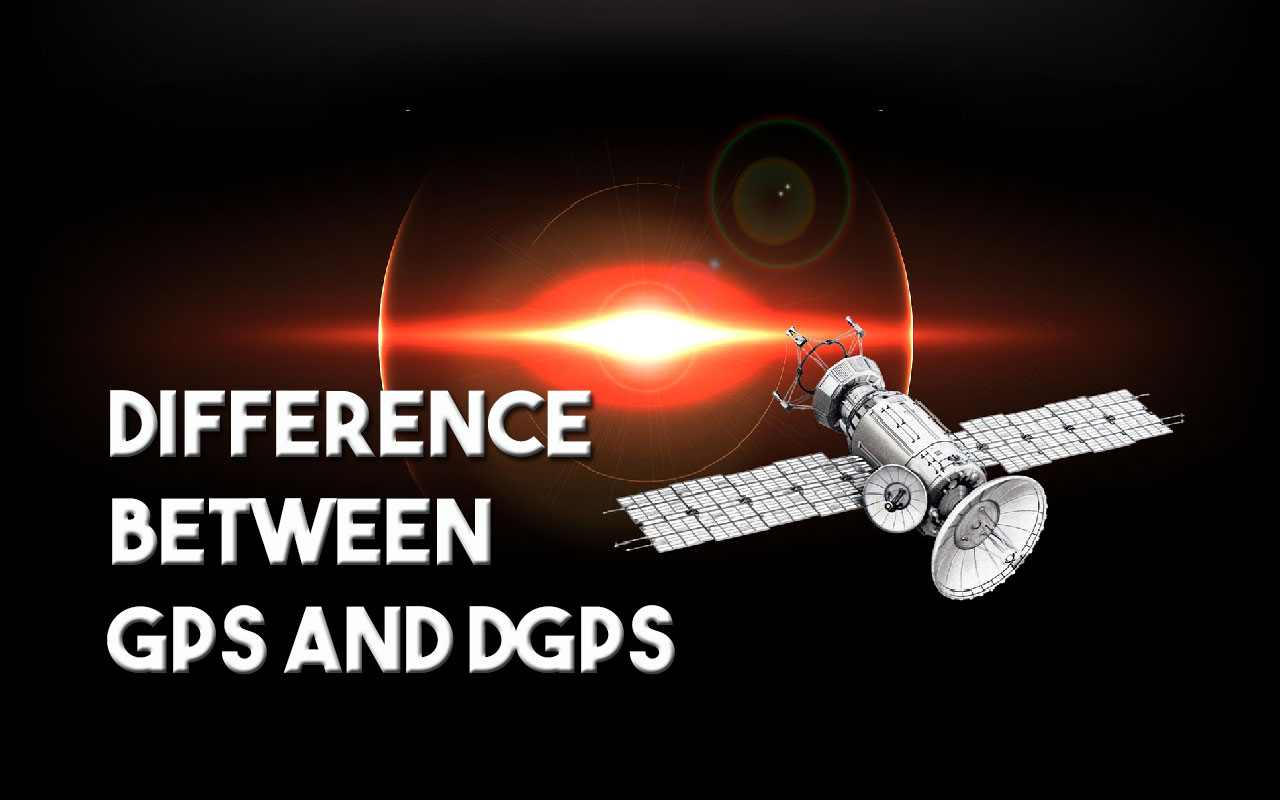The GPS and DGPS both are the satellite-based navigation systems. The fundamental distinction between GPS and DGPS lies in their accuracy, DGPS accuracy is correct than GPS. DGPS was by choice designed to scale back the signal degradation. Below we have listed some difference between GPS and DGPS, but before this let’s see What is GPS and DGPS.
Definition of GPS
GPS is a satellite-based navigation system made up of at least 24 satellites. GPS works in any weather conditions, anywhere on the earth, 24 hours a day. Signals are obtained by the GPS instrument, then the devices use these signals to calculate its location, speed, and time at the location, height of the location and other pieces of information. It is very popular in the military world and was first developed by the US Department of Defense for military use. In 1980, GPS technology was made available to the public.
What GPS Can Do for GIS
GPS is a wonderful information collection device for making and maintaining a GIS. It provides correct positions for point, line, and polygon features of ground. We can verify the location of previously captured data, GPS are used for verifying, maintaining, and updating the GIS data. GPS provides an excellent tool for validating geographic features, updating their attributes, and collecting new geographic features. Due to accurate location information provided by GPS, now a days Mobile GIS accesses enterprise GIS in the fields. It is an essential component for mobile GIS. With Mobile GIS, Data can be directly accessible to field staff whenever and wherever it is needed. Today GPS devices are used in almost every field work for data collection.
Five key uses of GPS:
- Location — It can determining a position.
- Navigation — getting from one location to another on the earth surface.
- Tracking Monitoring object or personal movement.
- Mapping — creating maps of the world
- Timing — making it possible to make precise time measurements.
How it works:
- 21 (51’S satellites and three spare satellites are in orbit at 12,500 miles above the Earth surface. The satellites are separated so that, four satellites will be over the earth surface.
- Each satellite contains a pc, an atomic clock, and a radio. With an understanding of its own orbit, each satellite regularly communicates its changing position and time once a day, each satellite checks its time and position with a ground station and makes any minor correction, if required.
- On the ground, any GPS receiver contains a framework that ‘triangulates” its own particular position by getting directions from three of the four satellites. The output is given as a geographic position to, for most receivers, within 100 meters.
- If the receiver is also equipped with a display screen then the position can be shown on the map.
- If the receiver, received the signal from the fourth satellite, then it can figure out the altitude as well.
- If your receiver is moving, then ii also able to calculate speed, direction and gives estimated time of arrival.
Definition of DGPS
DGPS is an enhancement to the GPS for the quality of location data. GPS system based on the satellite technology can have the nominal accuracy of 15 meters whereas using DGPS, can bring this accuracy nearly around 10cm. The accuracy of the GPS position and speed measurements can be improved using DGPS.
How it works:
DGPS (Differential Global Positioning System) utilize, mounted ground-based reference stations to communicate the excellence between the positions indicated by the GPS satellite and so the mounted known position from the base station. The digital correction signal ¡s broadcast all ground-based transmitters mentioned as rovers. DGPS rely on a pair of stations, one is that the base station and next is that the rover.
Difference between GPS and DGPS:
- In GPS, handheld device used to show location after receiving signals from the satellite whereas, in DGPS, the handheld device (rover) receives the calibrated signal from the ground-based transmitter and is more expensive than GPS.
- GPS accuracy is around 15 meters whereas DGPS can achieve, around 10cm.
- GPS instrument can be used globally whereas DGPS are meant locally may be within 100km, but it can change according to frequency.
- GPS system is affordable compared to DGPS system, as most of us using in our smart Phones.
- In GPS, signal frequency transmitted by satellite ranges between 1.1 to 1.5 GHz. While in DGPS frequency varies by agencies.
- GPS accuracy highly depends upon the number of satellites used for the calculation, atmospheric conditions, ionosphere, and troposphere. DGPS accuracy is not affected by these variables, it is affected by the distance between transmitters and the instrument (rover.)
- Most of the time coordinate system used in GPS will be WGS84 in Longitude and Latitude format, which is earth-centered, whereas DGPS might have a local coordinate system.
As the use of DGPS system becomes more prevalent and less expensive and available to the general public, they become more valuable to everyday users.
